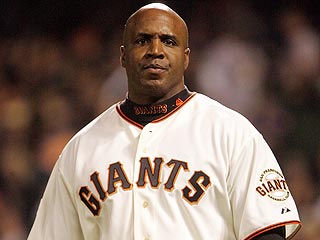Stronger human trafficking law coming to Michigan
Amendments intended to strengthen the existing human trafficking law take effect on Friday in Michigan, where experts say the form of modern-day slavery occurs more often than most people realize.
The new measures include longer prison terms for involuntary servitude, involving a minor in a sex act and obtaining labor or services by force, fraud or coercion.
Bridgette Carr, who directs the University of Michigan Law School's Human Trafficking Clinic, said the practice is happening all over the state, and tougher enforcement is needed to deal with the growing problem.
"In Michigan, we have seen victims in the U.P., in Detroit, in rural areas. We haven't found a community yet that we haven't seen a victim come from," Carr said. "So, what I often tell people is: `Find a community that doesn't have a drug problem, and I can talk about perhaps your community doesn't have a human trafficking problem.' That's how prevalent it is."
The new measures include longer prison terms for involuntary servitude, involving a minor in a sex act and obtaining labor or services by force, fraud or coercion.
Bridgette Carr, who directs the University of Michigan Law School's Human Trafficking Clinic, said the practice is happening all over the state, and tougher enforcement is needed to deal with the growing problem.
"In Michigan, we have seen victims in the U.P., in Detroit, in rural areas. We haven't found a community yet that we haven't seen a victim come from," Carr said. "So, what I often tell people is: `Find a community that doesn't have a drug problem, and I can talk about perhaps your community doesn't have a human trafficking problem.' That's how prevalent it is."
Carr received a $300,000 grant from the U.S. Department of State to open a human trafficking clinic in Mexico and has been to Alexandria University to help open Egypt's first law school legal clinic focusing on human trafficking and domestic violence.
And her Human Trafficking Clinic maintains what the university says is the nation's only comprehensive online database of human trafficking cases.
She said state laws that deal with human trafficking -- defined as occurring when someone exploits another person for labor or services -- are important because the federal government doesn't have the resources to prosecute all the cases.
"States need to step up to the plate," she said.
And many have.
South Dakota's governor signed a human trafficking measure into law earlier this month, and a similar bill is making its way through the Texas legislature.
On the federal side, Immigration and Customs Enforcement says it initiated 651 human trafficking investigations, made 300 arrests and secured 151 indictments and 144 convictions in fiscal year 2010.
One recent high-profile case in Michigan involves Veniamin Gonikman, who once was listed as a top fugitive by the U.S. government and is awaiting trial in Detroit on charges of human trafficking and other crimes.
He is accused of being a member of a violent ring that lured Eastern European women to the U.S. and forced them to become strippers.
The Michigan Human Trafficking Task Force, which is based at Michigan State University, said other cases in Michigan involve victims who are forced to work at strip clubs, restaurants, massage parlors, and on farms and construction sites.
And her Human Trafficking Clinic maintains what the university says is the nation's only comprehensive online database of human trafficking cases.
She said state laws that deal with human trafficking -- defined as occurring when someone exploits another person for labor or services -- are important because the federal government doesn't have the resources to prosecute all the cases.
"States need to step up to the plate," she said.
And many have.
South Dakota's governor signed a human trafficking measure into law earlier this month, and a similar bill is making its way through the Texas legislature.
On the federal side, Immigration and Customs Enforcement says it initiated 651 human trafficking investigations, made 300 arrests and secured 151 indictments and 144 convictions in fiscal year 2010.
One recent high-profile case in Michigan involves Veniamin Gonikman, who once was listed as a top fugitive by the U.S. government and is awaiting trial in Detroit on charges of human trafficking and other crimes.
He is accused of being a member of a violent ring that lured Eastern European women to the U.S. and forced them to become strippers.
The Michigan Human Trafficking Task Force, which is based at Michigan State University, said other cases in Michigan involve victims who are forced to work at strip clubs, restaurants, massage parlors, and on farms and construction sites.




















